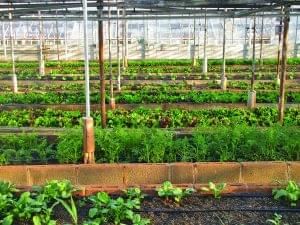Economic development is the basic priority of agricultural policy
The strategic plan of Hungary’s Common Agrarian Policy offers tangible solutions to the challenges facing agriculture – stated the State Secretary of the Ministry of Agriculture responsible for agriculture and rural development at the 35th Bábolna Farmers’ Conference on Thursday.

The KAP supports the development of domestic farming in a comprehensive way (Photo: Pixabay)
Zsolt Feldman reminded that the Renewable Region, Renewable Agriculture program announced in order to renew agriculture rests on four pillars, these are economic development, food supply, green environmental measures and goals related to rural development, and the Hungarian strategic plan serves to implement them. He added that the government provides 80 percent of national additional funding in addition to the EU development fund to the maximum extent provided by EU law.
In the period 2023-2027, more than HUF 2,500 billion and HUF 2,850 billion in rural development subsidies will go to agricultural policy purposes within the framework of Pillar I of the CAP
Thanks to the resources, four and a half times more financing is available for economic development purposes, twice as much for green purposes, and one and a half times more for rural development measures. You have to prepare for new opportunities, it’s worth planning with knowledge of them, so you can manage successfully in the long term – emphasized Zsolt Feldman, according to the announcement.
The strategic plan also includes opportunities for advancement in digitization and encouraging generational change.
The state secretary also mentioned that the support options of the Common Agricultural Policy form a complex system and provide significant innovations for producers. Among the agricultural subsidies, the redistributive subsidy for small and medium-sized farms will appear, the previous system of greening conditions will be merged into the basic subsidy paid for agricultural land, and the new agro-ecology program will also be launched. Zsolt Feldman also mentioned the expanding opportunities related to water retention and sustainable soil management as an example. He explained that for long-term sustainable and effective management, the actors of agriculture must have constantly updated knowledge. The good practices necessary for adaptation must be made available and shown to a wide range of farmers. The state secretary said that the previous production practices of several decades must be reconsidered and renewed, because this is the only way to achieve results in the current challenging period – read the statement.
MTI
Related news
European Court of Auditors: EU Commission proposals affecting the common agricultural policy may cause uncertainty
🎧 Hallgasd a cikket: Lejátszás Szünet Folytatás Leállítás Nyelv: Auto…
Read more >Tuned to efficiency
🎧 Hallgasd a cikket: Lejátszás Szünet Folytatás Leállítás Nyelv: Auto…
Read more >Related news
The Hungarian Food Book is 50 years old
🎧 Hallgasd a cikket: Lejátszás Szünet Folytatás Leállítás Nyelv: Auto…
Read more >ZEW: Economic expectations worsened in Germany and the euro area in February
🎧 Hallgasd a cikket: Lejátszás Szünet Folytatás Leállítás Nyelv: Auto…
Read more >NKFH: inspections focus on discount prices and customer deception
🎧 Hallgasd a cikket: Lejátszás Szünet Folytatás Leállítás Nyelv: Auto…
Read more >







